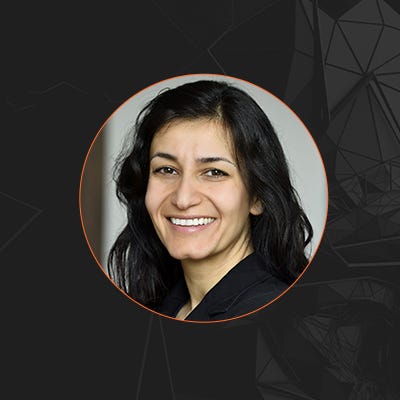Last year as the COVID-19 pandemic was spreading and countries went into lockdown, many of us thought we’d be working from home for just few weeks or maybe, at worst, a few months. It was hard to imagine a year away from our daily routines, without the ability to interact with friends, family and colleagues in person.
We had to cancel last year’s ABET Symposium in Nashville, Tennessee, due to the pandemic. When we chose Data Impact as the theme in 2020, we planned to explore the expanding influence data has across the STEM fields, and how it is reshaping the educational model and student experience. As we began planning the 2021 ABET Symposium as a virtual event, there was no doubt that data science would still be a relevant theme to explore. The COVID-19 pandemic has served as a great example of how we can use data science to understand and manage a global health crisis. Data science has helped us learn how the virus is passed from one person to another, how it attacks our bodies and how it evolves. We also used data science to help predict the spread of the coronavirus around the world.

We just wrapped up the 2021 ABET Symposium, our first virtual conference, and I’m proud to share it was an overwhelming success! We had over 1,400 attendees from 32 countries join us for three days of informative and inspiring content. The online format made it more accessible, an unexpected benefit of everything switching to virtual this past year, and we saw a much higher attendance than any in-person Symposium we’ve hosted in the past.
We kicked off the 2021 ABET Symposium with a keynote from Kimia Ghobadi, Ph.D., the John C. Malone Assistant Professor in Civil and Systems Engineering at Johns Hopkins University (JHU) and a member of both the Center for Systems Science and Engineering (CSSE) and the Malone Center for Engineering in Healthcare at JHU. In her opening keynote, Data and Healthcare, Ghobadi discussed how organizations and people use data for the common good, and the integral role of data science throughout the STEM disciplines. A prime example is the Johns Hopkins COVID-19 Dashboard — a graphical reporting tool used by news outlets, governments and global health organizations to report real-time data on infection rates, recoveries and deaths.
Ghobadi rounded out her presentation by discussing data science and its impact on the future of education. All STEM students must graduate with an understanding of how to collect, process, analyze and evaluate data. It will become an ever-increasing requirement for addressing the many complex challenges facing us.

Members of ABET’s Industry Advisory Council (IAC) kicked off day two of our Symposium with a keynote panel discussing the critical role of employers in the accreditation process, both for the long-term success of graduates and the long-term success of accredited programs. Jeffrey Abell of General Motors, Naguib Attia of IBM Global University Programs and Rebecca Jones of SafeworkCM discussed how industry and academia partner to address areas of interest, such as data science and analytics, that are in critical demand.
On the last day, we heard from Ph.D. candidates from the JHU Department of Civil and Systems Engineering during the Symposium’s closing keynote panel, Data Impact: Real-Time Tracking and Forecasting of COVID-19, moderated by U.S. Naval Academy Provost and ABET Computing Area Director Andrew T. Phillips, Ph.D.
As COVID-19 arrived in the U.S. early last year and quickly spread throughout the country, many of us were refreshing the Johns Hopkins COVID-19 Dashboard in an effort to understand what was happening in our own areas and around the world. These interactive maps allowed anyone with internet access to see the spread of the coronavirus in real time. The dashboard was created and continues to be maintained by our closing keynote speakers Ensheng Dong, Hongru Du and Maximilian Marshall of the Center for Systems Science and Engineering (CSSE) at JHU, under the leadership of their advisor, Lauren Gardner, Ph.D., co-director of CSSE.

These graduate students discussed how and why they created the dashboard, and how collaboration and teamwork across their different areas of expertise were critical to the success of this project. Along with Ghobadi, they also touched on “civilization engineering,” or the interaction of people with the built environment. I was so impressed by Dong, Du and Marshall, who worked tirelessly to build the COVID-19 dashboard and use its data for the public good. As they said in their panel, “We’re all in engineering because we care about solving meaningful problems.”
It is estimated that 2.5 quintillion bytes of data are created every day, and over 90% of these data were collected within the last two years alone. Data is everywhere and pertains to every discipline. As the global accreditor of college and university STEM programs, it is ABET’s role to provide quality assurance that a program meets the standards set by its technical profession, which is why we’re excited to accredit data science programs in computing and have plans to add data science accreditation criteria for programs in the applied and natural sciences in the near future as well.
While the past year has brought many challenges, we have learned from these experiences and quickly adapted to a virtual world. Scientists, engineers and other STEM professionals played an integral role in developing vaccines in unprecedented speed — and they were able to do it because of the ability to understand and interpret data.
